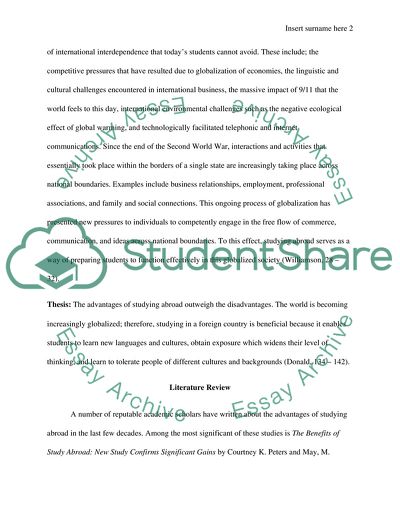Cite this document
(Benefits of Studying Abroad Term Paper Example | Topics and Well Written Essays - 2000 words - 10, n.d.)
Benefits of Studying Abroad Term Paper Example | Topics and Well Written Essays - 2000 words - 10. https://studentshare.org/education/1784642-research-paper
Benefits of Studying Abroad Term Paper Example | Topics and Well Written Essays - 2000 words - 10. https://studentshare.org/education/1784642-research-paper
(Benefits of Studying Abroad Term Paper Example | Topics and Well Written Essays - 2000 Words - 10)
Benefits of Studying Abroad Term Paper Example | Topics and Well Written Essays - 2000 Words - 10. https://studentshare.org/education/1784642-research-paper.
Benefits of Studying Abroad Term Paper Example | Topics and Well Written Essays - 2000 Words - 10. https://studentshare.org/education/1784642-research-paper.
“Benefits of Studying Abroad Term Paper Example | Topics and Well Written Essays - 2000 Words - 10”. https://studentshare.org/education/1784642-research-paper.


